The TIQUILA programme is expected to deliver Mini-Unmanned Air System (MUAS) capability to provide Intelligence, Surveillance, Target Acquisition and Reconnaissance (ISTAR) roles in small, portable loads in support of field operations.
According to a contract tender notice published by the Ministry of Defence:
“The TIQUILA Programme objective is to deliver Mini-Unmanned Air System (“MUAS”) capability to provide Intelligence, Surveillance, Target Acquisition and Reconnaissance (“ISTAR”) roles in Man-Packable and Man-Portable loads in support of field operations.
The contract delivery will be the responsibility of a Systems Integrator (“SI”) working in conjunction with suppliers to meet developing demands and to keep pace with emergent technology and threats.
The solution and equipment provided will be evolving and modular and be upgradeable in Forward Operating Base workshops with limited basic tools to enable the system to fulfil multiple roles and maintain pace with technology and emerging threats.”
The tender goes into the specifics:
“Provision of Man-Packable MUAS (up to 8kg system weight, up to 4kg Max Take-Off Weight) and Man-Portable MUAV (up to 20kg Max Take-Off Weight) that operate from a common Ground Control Station (“GCS”) with an Electro Optical/Infra- Red (“EO/IR”) payload that meets the requirements of the TIQUILA Programme.”


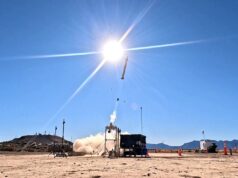
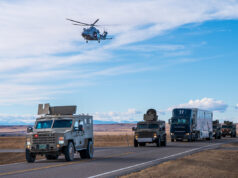
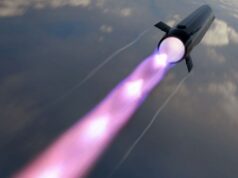
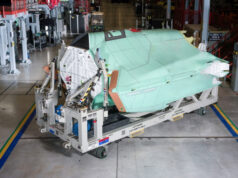
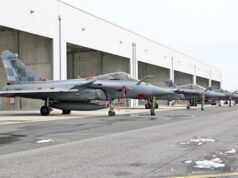

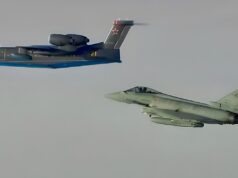
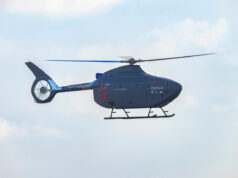
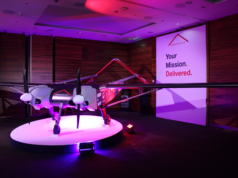
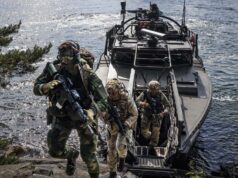

In light of recent news from Afghanistan, I wonder if future land actions will have fewer boots on the ground and more operations dominated by drones of all shapes and sizes? One thing is clear, the sophistication of the technology is moving at an alarming rate, where typical soldier practises could be replaced by these machines? The concept of being heavily reliant on autonomous vehicles could be a reality sooner than we might think?
My view is afgan/iraq have demonstrated the reverse, there is no replacement for boots on the ground.
drones should be seen as a compliment to the solider not a replacement, but instead they are seen as a cheap way of cutting numbers further.
If you look at the amount of money the military spend on kit it does not suggest it is a cheap option. We need to send our forces out with everything they need to give them an edge on the battlefield. War is, and never has been, just a numbers game it is about training, skills, tactics and now tech. War fighting is evolving as it always has been – we should never allow ourselves to stand still.
Personally outside of NATO and the commonwealth I cannot see the UK doing boots on the ground. The focus is going to be on drone strikes, cyber and strategic level raids. Cause as much damage as possible in as little time as possible and then get the hell out of Dodge.
For the time being yeah. But it’s a cycle, bad deployment and politicians get nervous about deploying for a decade or so and then the memory fades and the next generation of idiots get elected that are more focused on person wealth, after all lets face it afgan was about the oil pipeline and Iraq was about oil fields. Niether war was for the good of the locals or anyone else.
Hopefully when the next deployment happens, our forces will be better equipped rather than walking into a civil war with outdated gear and insufficient amount of what gear they did have.
Drones and technology will continue to increase the effectiveness of the modern soldier in war fighting but perhaps less so in peace keeping. In Afghanistan the original objective of eliminating those responsible for the 9/11 attacks would now be much easier and will continue to get easier using tech. Encouraging a population to join a modern peaceful world when their heart is not in it is almost impossible. This they can only do alone.
The summary spelt out by the US president made for uncomfortable listening, however, there was a stark reality in what he said. Endless commitment such as in Afghanistan, which eats billions may be too expensive to continue in traditional military form, and new answers will be needed. It’s not the cost in dollars and sterling that stings but the constant loss of life of our forces. Concentrated air surveillance and remote interdiction using drone technology, seems to be the best way in dealing with future Afgan type scenarios?
So when do you suggest the US should end it’s deployment in Korea? Everyone seems so interested in the Afghan scenario, they forget that there are deployments that have gone on for MUCH much longer, with no end in sight.
Difference is combat. It probably doesn’t cost a huge amount to deploy an armed force abroad Vs having them at home, and gives soldiers an international experience. However if that deployment is activ,e, then the cost in lives/ammo/supplies rapidly builds up.
Steve has clarified very eloquently the situation.
I disagree.
Also, if that was directed at me I suggest you reply to me.
US KIA in Afghan since 2015 (not including yesterday’s Biden fiasco) have been just over 50. “Rapidly building” up my foot.
Only 50 is that right? We have unfortunately lost way more. In the end 1 death is too much for a war that makes no sense.
It’s not US have lost over 2.3k
Difference between Korea and Afghan is the DMZ, in South Korea troops not being killed on patrol by IED’s etc i expect the number of US troops killed in Korea AFTER the armistice is not even a fraction of the losses in Afghan.
Not at all different, except that there is 70+ years to have pacified the situation. US casualties in Afghan have been extremely low since 2014, and if numbers of troops killed are so low, then mission accomplished, time to pull back.
Oh wait no. Because Korea happened in a world where people understood that multiple decade, open ended deployments are a thing. Too bad that seems to have been widely forgotten by the Americans.
In reality the protagonists in the Korean war were the Chinese, Russians and the Americans with the battleground being Korea which was one of the few places they could fight with minimal risk of it going nuclear. Keeping the status quo for all these decades is simply the least expensive way for all sides to avoid conflict. Totally different scenario to afghanistan?
Agreed.
interesting. could it also leave armed forces extremely venerable to cyber attacks? if how the mods describing our armed forces to be in the future, then it doesn’t sound like its gonna be very hard to knock them about through cyber attacks. i wonder how their gonna deal with that.
Seems good progress is being made in the army in terms of drones, article a couple of days back about drones defending artillery positions. They also seemed to have been interested in the UGV’s department (UNMANNED GROUND VEHICLES)
https://www.janes.com/defence-news/news-detail/british-army-orders-four-rheinmetall-mission-master-cargo-ugvs
Thats rare sight , a British tank!!!!
These drones should compliment the work of ground forces. The drones will be the ‘eyes and ears, however ground forces should carry on training in these roles. AI is fantastic, but it would be folly to rely on it entirely, or maybe that is the aim for the future forces policy ‘committee’. (just need to make sure the ‘committee’ is not overpopulated with bean counters)
If nothing else the project name… IT MAKES ME HAPPY…
Indeed.
Well everyone else is making intelligent cogent remarks about the future of UAV’s. I’d like to take this opportunity to share something I’ve learned from long experience. If your ever in a karaoke bar pick Tiquila ! :wpds_lol: